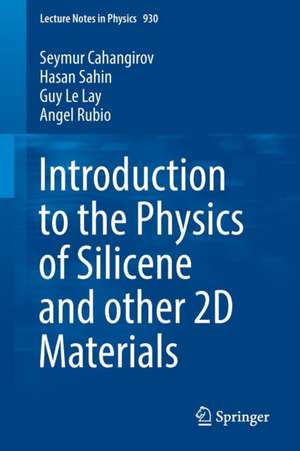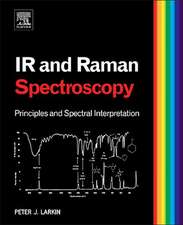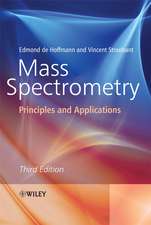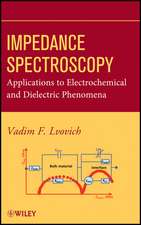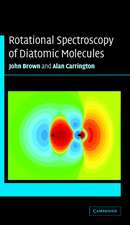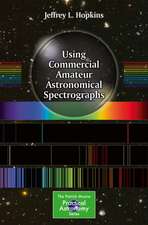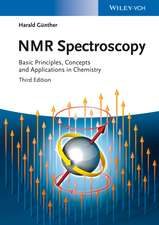Introduction to the Physics of Silicene and other 2D Materials: Lecture Notes in Physics, cartea 930
Autor Seymur Cahangirov, Hasan Sahin, Guy Le Lay, Angel Rubioen Limba Engleză Paperback – 4 noi 2016
The text starts with a brief history of silicene, followed by a comparison of the bonding nature in silicon versus carbon atoms. Here, a simple but robust framework is established to help the reader follow the concepts presented throughout the book. The book then presents the atomic and electronic structure of free-standing silicene, followed by an account of the experimental realization of silicene on substrates. This topic is subsequently developed further to discuss various reconstructions that silicene acquires due to interactions with the substrate and how such effects are mirrored in the electronic properties. Next the book examines the dumbbell structure that is the key to understanding the growth mechanism and atomic structure of multilayer silicene. Last but not least, it addresses similar effects in other elemental 2D materials from group IV (germanene, stanane), group V (phosphorene) and group III (borophene), as well as transition metal dichalcogenides and other compositions, so as to provide a general comparative overview of their electronic properties.
Din seria Lecture Notes in Physics
- 19%
 Preț: 424.00 lei
Preț: 424.00 lei - 17%
 Preț: 360.73 lei
Preț: 360.73 lei -
 Preț: 429.22 lei
Preț: 429.22 lei - 17%
 Preț: 427.62 lei
Preț: 427.62 lei - 17%
 Preț: 460.26 lei
Preț: 460.26 lei -
 Preț: 427.96 lei
Preț: 427.96 lei -
 Preț: 481.93 lei
Preț: 481.93 lei - 17%
 Preț: 494.66 lei
Preț: 494.66 lei -
 Preț: 281.90 lei
Preț: 281.90 lei - 17%
 Preț: 493.20 lei
Preț: 493.20 lei - 17%
 Preț: 426.72 lei
Preț: 426.72 lei -
 Preț: 365.15 lei
Preț: 365.15 lei -
 Preț: 374.52 lei
Preț: 374.52 lei -
 Preț: 407.98 lei
Preț: 407.98 lei - 20%
 Preț: 428.13 lei
Preț: 428.13 lei -
 Preț: 263.30 lei
Preț: 263.30 lei - 15%
 Preț: 593.73 lei
Preț: 593.73 lei - 15%
 Preț: 528.13 lei
Preț: 528.13 lei -
 Preț: 493.12 lei
Preț: 493.12 lei - 17%
 Preț: 425.68 lei
Preț: 425.68 lei -
 Preț: 280.65 lei
Preț: 280.65 lei -
 Preț: 163.41 lei
Preț: 163.41 lei - 18%
 Preț: 726.59 lei
Preț: 726.59 lei -
 Preț: 394.84 lei
Preț: 394.84 lei - 15%
 Preț: 709.63 lei
Preț: 709.63 lei - 15%
 Preț: 623.90 lei
Preț: 623.90 lei - 20%
 Preț: 476.93 lei
Preț: 476.93 lei - 15%
 Preț: 428.05 lei
Preț: 428.05 lei -
 Preț: 342.78 lei
Preț: 342.78 lei - 18%
 Preț: 851.93 lei
Preț: 851.93 lei -
 Preț: 346.61 lei
Preț: 346.61 lei -
 Preț: 391.57 lei
Preț: 391.57 lei - 15%
 Preț: 633.16 lei
Preț: 633.16 lei -
 Preț: 451.71 lei
Preț: 451.71 lei - 5%
 Preț: 1497.80 lei
Preț: 1497.80 lei -
 Preț: 374.85 lei
Preț: 374.85 lei -
 Preț: 380.07 lei
Preț: 380.07 lei - 15%
 Preț: 516.14 lei
Preț: 516.14 lei - 15%
 Preț: 583.78 lei
Preț: 583.78 lei - 15%
 Preț: 508.60 lei
Preț: 508.60 lei -
 Preț: 469.73 lei
Preț: 469.73 lei -
 Preț: 388.90 lei
Preț: 388.90 lei - 15%
 Preț: 500.24 lei
Preț: 500.24 lei -
 Preț: 386.52 lei
Preț: 386.52 lei - 15%
 Preț: 472.88 lei
Preț: 472.88 lei -
 Preț: 424.27 lei
Preț: 424.27 lei -
 Preț: 380.07 lei
Preț: 380.07 lei - 15%
 Preț: 500.01 lei
Preț: 500.01 lei
Preț: 344.14 lei
Nou
Puncte Express: 516
Preț estimativ în valută:
65.87€ • 71.58$ • 55.37£
65.87€ • 71.58$ • 55.37£
Carte tipărită la comandă
Livrare economică 21 aprilie-05 mai
Preluare comenzi: 021 569.72.76
Specificații
ISBN-13: 9783319465708
ISBN-10: 3319465708
Pagini: 110
Ilustrații: X, 96 p. 52 illus., 51 illus. in color.
Dimensiuni: 155 x 235 x 6 mm
Greutate: 0.16 kg
Ediția:1st ed. 2017
Editura: Springer International Publishing
Colecția Springer
Seria Lecture Notes in Physics
Locul publicării:Cham, Switzerland
ISBN-10: 3319465708
Pagini: 110
Ilustrații: X, 96 p. 52 illus., 51 illus. in color.
Dimensiuni: 155 x 235 x 6 mm
Greutate: 0.16 kg
Ediția:1st ed. 2017
Editura: Springer International Publishing
Colecția Springer
Seria Lecture Notes in Physics
Locul publicării:Cham, Switzerland
Cuprins
History of silicene.- Silicon versus carbon; likes and dislikes.- Atomic structure and stability of silicene.- Electronic structure of silicene.- Various functionals and beyond DFT.- Experimental realization on substrates.- Atomic and electronic structure of 3x3 silicene on 4x4 Ag (111).- Emergence of mysterious v3xv3 structures; towards multilayer growth.- Dumbbell structure and growth kinetics.- Silicites; layered allotropes of silicon.
Textul de pe ultima copertă
This concise book offers an essential introduction and reference guide for the many newcomers to the field of physics of elemental 2D materials. Silicene and related materials are currently among the most actively studied materials, especially following the first experimental synthesis on substrates in 2012. Accordingly, this primer introduces and reviews the most crucial developments regarding silicene from both theoretical and experimental perspectives. At the same time the reader is guided through the extensive body of relevant foundational literature.
The text starts with a brief history of silicene, followed by a comparison of the bonding nature in silicon versus carbon atoms. Here, a simple but robust framework is established to help the reader follow the concepts presented throughout the book. The book then presents the atomic and electronic structure of free-standing silicene, followed by an account of the experimental realization of silicene on substrates. This topic is subsequently developed further to discuss various reconstructions that silicene acquires due to interactions with the substrate and how such effects are mirrored in the electronic properties. Next the book examines the dumbbell structure that is the key to understanding the growth mechanism and atomic structure of multilayer silicene. Last but not least, it addresses similar effects in other elemental 2D materials from group IV (germanene, stanane), group V (phosphorene) and group III (borophene), as well as transition metal dichalcogenides and other compositions, so as to provide a general comparative overview of their electronic properties.
The text starts with a brief history of silicene, followed by a comparison of the bonding nature in silicon versus carbon atoms. Here, a simple but robust framework is established to help the reader follow the concepts presented throughout the book. The book then presents the atomic and electronic structure of free-standing silicene, followed by an account of the experimental realization of silicene on substrates. This topic is subsequently developed further to discuss various reconstructions that silicene acquires due to interactions with the substrate and how such effects are mirrored in the electronic properties. Next the book examines the dumbbell structure that is the key to understanding the growth mechanism and atomic structure of multilayer silicene. Last but not least, it addresses similar effects in other elemental 2D materials from group IV (germanene, stanane), group V (phosphorene) and group III (borophene), as well as transition metal dichalcogenides and other compositions, so as to provide a general comparative overview of their electronic properties.
Caracteristici
Provides a first introduction and overview about this new material Authored by leading reseachers in the field Covers both fundamentals and emergent applications Includes supplementary material: sn.pub/extras
